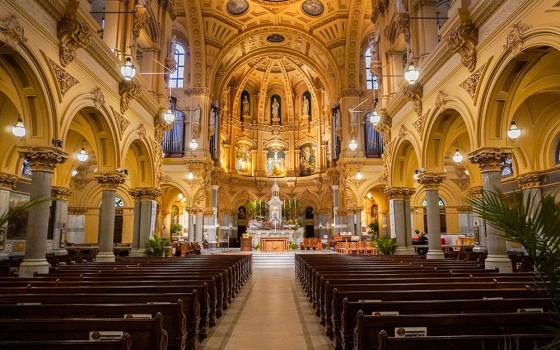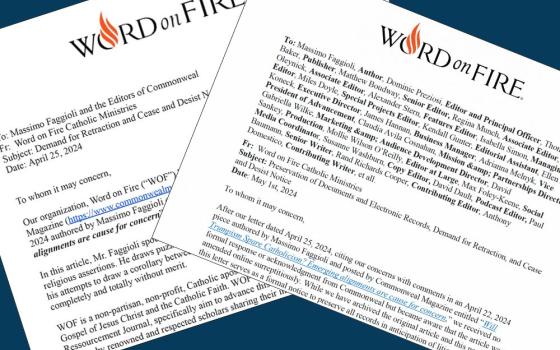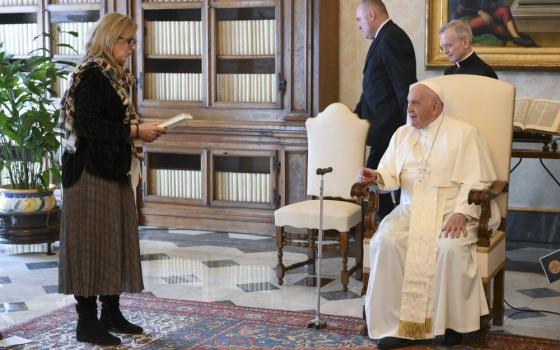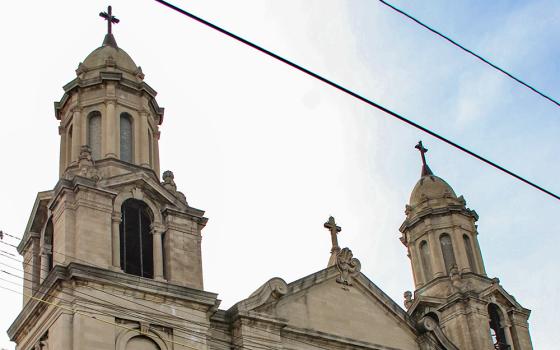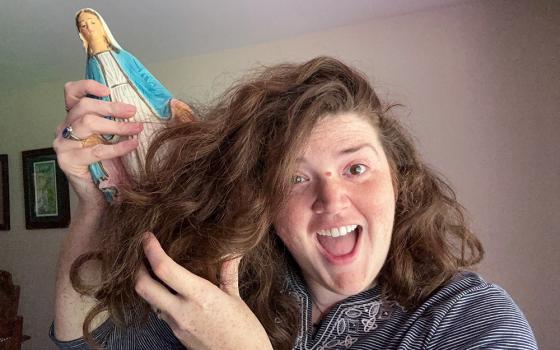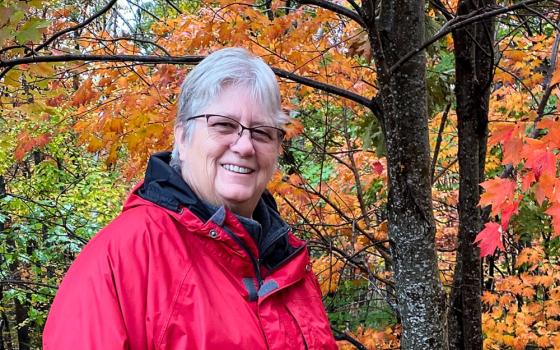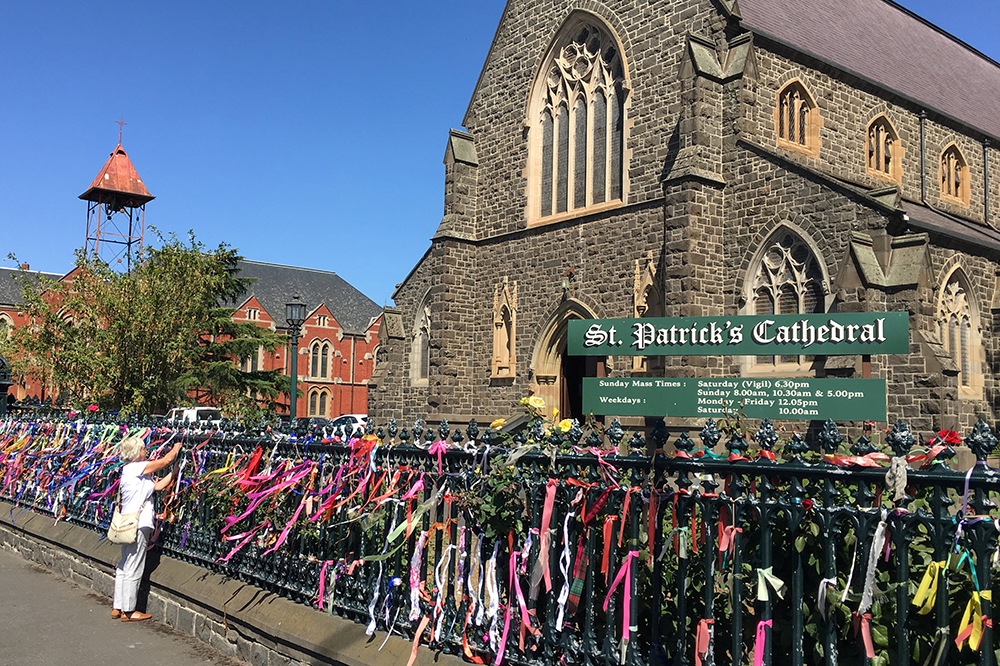
A woman puts a ribbon on the fence of St. Patrick's Cathedral in Ballarat, Australia, Feb. 27, 2019. The ribbons raise awareness and show support for victims of abuse. (CNS/Reuters/Jonathan Barrett)
Two new major studies on clergy sexual abuse reveal the Catholic Church's efforts toward safeguarding and child protection are being met with mixed results, with attitudes and awareness varying depending on location and roles within the church.
A newly published study from the Global Safeguarding Alliance, led by Australian Catholic University's Institute of Child Protection Studies found that Catholic clergy scored higher than lay people in their knowledge, awareness and attitudes in responding to abuse.
The research included over 180 participants across six countries and suggests that in responding to the decades long crisis of clerical abuse, reform efforts and strategies "have been largely targeted at clergy, who are seen as leaders in the Church, and thus have benefitted from the Church's safeguarding reforms."
Advertisement
In addition, researchers found that participants in Australia and the United Kingdom — countries that have had national inquiries into sexual abuse — responded with more positive attitudes towards the importance of safeguarding than did respondents in Ghana and India.
According to the report's recommendations, Catholic clergy should be encouraged to acknowledge and take ownership of the church's past failings on abuse in order to create safer environments for children. Among the laity, the report suggests that more efforts should be made to develop an awareness of policies and procedures to help prevent abuse and more attention should be given to the role of the laity in building a "a positive organizational culture of safeguarding."
Another study, the first of its kind to provide a comprehensive snapshot of how abuse has affected the Catholic community of England and Wales, found that institutional responses to abuse were largely lacking in compassion and that elements of "Catholic culture" — including clericalism and silence — often contributed to abuse.
The nearly 200-page report, "The Cross of the Moment," was produced by Durham University's Centre for Catholic Studies and is the result of over 80 interviews and four focus groups with abuse survivors, priests, bishops, and members of men and women religious orders. The study included the participation of 14 of the 22 Catholic dioceses in England and Wales and 16 religious orders.
While the researchers of the nearly 200-page report said the study prioritizes the voices of survivors and does not make specific recommendations, and is meant to be used as a resource and point of reflection, it provides first hand accounts of survivors, priests and other officials responsible for safeguarding.
In particular, the report chronicles what is described as "secondary abuse," by victims who recount the absence of pastoral care provided by survivors seeking a response to their allegations.
"I think if you’re already part of the Church, you want a response that makes you feel as though you’re kind of being, well, listened to would be the minimum and looked after would be the next step really," recalled one female survivor. "I didn’t experience either of those."
One report chronicles what is described as "secondary abuse," by victims who recount the absence of pastoral care provided by survivors seeking a response to their allegations.
Also included are the voices of priests who call for greater accountability, both for the sake of victims as well as for their own care.
"I think we’re the least monitored, least controlled, least supervised group of people in the whole world," stated one parish priest. Another priest called for greater oversight "for the greater well-being of the priest himself."
Both reports come at a time when the global Catholic Church continues to reckon with clergy sexual abuse.
In March, Pope Francis overhauled the leadership of the Vatican's Pontifical Commission for the Protection of Minors, which has been roiled with management difficulties. In addition, the Vatican has re-opened the case of a well-known priest-artist, former Jesuit Marko Rupnik, who is accused of sexual, psychological and spiritual abuse of adult women, but who remains in ministry in his native Slovenia. The case has loomed large over Francis who was known to be well-disposed to the former member of his own order.
Earlier this year, in England, the ordination of the new bishop-elect of the Diocese of Plymouth was canceled due to a canonical investigation and it remains uncertain whether it will proceed ahead.
Meanwhile, in England's northeastern Diocese of Hexham and Newcastle, a 2023 installation of a new bishop included the testimonial of a clergy abuse victim, following this resignation of his predecessor who had resigned after being found to have ignored and undermined diocesan safeguarding policy.





